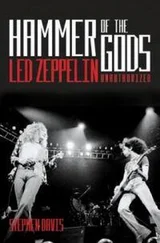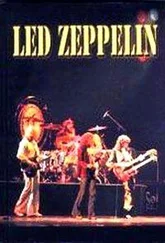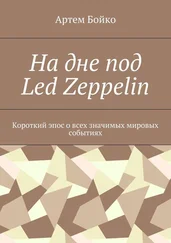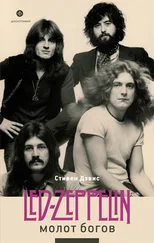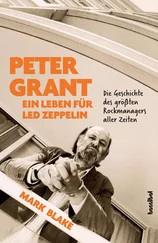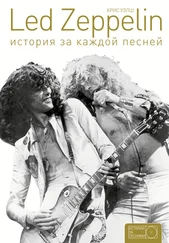Two years later, Led Zeppelin reunited for a charity concert in London. This single show in December 2007 ignited a planetary wave of interest in the band, with tens of millions reportedly applying online for the 20,000 available tickets. There was a period of intense speculation and hope that this epochal (and famously contentious) group could re-form around the son of its late drummer and reconquer Planet Rock with its dark combo of black magic and Woodstockian fantasy.
But this didn’t happen.
Around then, I began to reread the LZ-’75 notes and discovered there was a story that could be told about being around Led Zeppelin at the apex of the band’s career. The year 1975 was fateful for Led Zeppelin; an examination of what happened to the four musicians during that year could be intriguing to their legion of fans, a legion that has expanded across three generations. And these were, looking back, extremely interesting times. In America, a president had been forced from office in August 1974 over the pointless Watergate burglary. England was plagued with shortages and strikes, and was routinely predicted to be on the verge of chaos. The Vietnam War was still being fought. It was the era of Idi Amin, Pol Pot, Carlos the Jackal, and ABBA. Jamaican reggae music was fighting an insurgency against disco for the soul of the dance floor. Bob Marley was alive and well. In London, the new punk bands were beginning to rehearse in the back rooms of Kings Road boutiques. But Led Zeppelin, secure within its own secret society, operated outside the temporal runnings; few of 1975’s headlines really matter to our story. So I’ve combined my firsthand account with other reliable sources, some recently discovered, and added musical data informed by the nearly complete library of bootleg recordings of the band’s 1975 concerts.
LZ-’75 is a personal portrait of the greatest rock band in history, at the apogee of its flight. For Led Zeppelin, everything they had done until then led up to the epic music they would create in 1975: a year of travel, incredible artistic success, personal exaltation, near-death traumas, and a creative rebirth under painful hardship and dislocation. It was the top year for the band. After 1975, Led Zeppelin would never be the same again.
—S.D.
CHAPTER 1 Cold Might on Boone’s Farm
The trouble started, as it often does in Boston, on a freezing winter night. This was in January 1975. The city’s radio stations and street papers had announced that tickets for Led Zeppelin’s first North American tour in two years would go on sale at the city’s main arena, Boston Garden, at ten o’clock on a Tuesday morning.
The kids started lining up on Causeway Street, outside the arena, at six o’clock on Monday night, January 6. They were a young crowd of suburban teenagers—Zeppelin’s hard-core audience—and by nine o’clock they numbered around 500. A few had tape players, and songs from Led Zeppelin, Led Zeppelin II, III, and IV, and Houses of the Holy blared in the cold night air.
By ten o’clock, it was ten degrees outside, and someone made the decision to let the kids on line spend the night in Boston Garden so they wouldn’t freeze to death before the box office opened the next morning. A cheer went up as the kids, most of them wearing blue denim, were let into the building.
Soon they were passing joints and swigging from bottles of cheap Ripple and Boone’s Farm apple wine. When that ran out, some kids broke into the beer concessions during a shift change of the security guards. Someone opened an exit door and let in a few hundred more kids who had arrived to line up for tickets. The kids turned on the fire hoses and flooded the arena’s hockey rink. The police arrived as Led Zeppelin’s fans were looting merchandise stands and lighting bonfires composed of the Garden’s old wooden seats. Drunken kids then turned the high-pressure fire hoses on the cops and their dogs. It took the riot squad three hours to chase the kids out of the building. The Zeppelin fans then fought the police in the streets until they were dispersed sometime after midnight.
The box office failed to open on Tuesday morning. Damage was estimated at $50,000. A Boston Bruins hockey game was canceled because the rink was fucked up. Then the mayor of Boston, after visiting the sacked and still-smoking arena, declared the city would refuse to grant the local promoter a permit to hold the February 4 concert. Led Zeppelin would be forced to bypass Boston on their 1975 American tour.
When things get out of control, everyone loses money. So promoters in other cities took note. An official from the Ticket-ron agency, the nation’s biggest ticket-seller, contacted Jerry Weintraub, the concert promoter Zeppelin shared with Elvis Presley, and asked him to postpone announcement of ticket sales, but Weintraub refused to go along. In New York, Madison Square Garden managed to avoid a riot by not announcing when Zeppelin tickets would go on sale.
“If we had,” a spokesman told The New York Times, “the youngsters would have stayed there all week.” But demand for Zeppelin’s three February shows in New York was so intense that lines began to form in substantial numbers anyway as word leaked out that the box office would open at one A.M. on Sunday morning. Sixty thousand seats for the three shows sold out in three hours. It was reported that 45,000 were sold through the box office and 15,000 sold through Ticketron.
It was different out on Long Island, one of the most passionate of Zeppelin’s suburban strongholds. Kids began to line up at the Nassau Coliseum, in Uniondale, three days before the box office opened. To prevent disorder, numbers were assigned to 2,000 people, who were then locked in the hockey arena’s exhibition hall and allowed to remain overnight, under guard. In the morning, only the first 900 buyers were able to buy all 20,000 tickets, leading to complaints about scalping and corruption in the ticket industry. When the cops told disappointed fans to go home, there was some shoving and cursing though no arrests.
But two miles away, six fans were arrested when an estimated 2,000 fans jammed into a Macy’s department store at the Roosevelt Field mall in Garden City. The line was orderly until twenty-five Nassau County policemen attempted to “reorganize” the waiting line. Some kids at the front of the line were evicted by the cops, and their places immediately filled by others, who seemed to be friendly with the police. Bryan Brett, nineteen, of Glen Cove, told the Times: “The cops pushed some of us out of the line, and other kids stepped in front, and they got the tickets while we got nothing after waiting for hours.”
Some of the kids told the cops they were crooks and assholes. There was shoving and threats. Six Zeppelin fans were arrested on charges of disorderly conduct and harassment. The Times reported that “the extent of any ticket scalping for the rock shows could not be determined yesterday. The Department of Consumer Affairs said it had not received any complaints.”
Led Zeppelin’s entire 1975 North American tour sold out within a few hours after its tickets went on sale. According to Jerry Weintraub, even Evis Presley was impressed.
“Well, I may not be … Led Zeppelin” the king of rock & roll would drawl. “But I can still pack ‘em in.”
Sure, Elvis. Anything you say. Viva Las Vegas.
CHAPTER 2 Key to the Highway
Iclipped the press accounts of the Led Zeppelin riots from the Boston and New York newspapers because I was currently on a magazine assignment to cover the tour.
This had started the previous month when I received a message that my friend Danny Goldberg had called from New York. Danny was the twenty-four-year-old vice president of Swan Song Records, Led Zeppelin’s new record label. I was surprised to hear from him because I’d heard Danny was extremely busy. Swan Song was not only releasing Zeppelin’s own albums but was also putting out records by artists that the members of Zeppelin liked. Already signed to Swan Song were Bad Company, a new band made up of young veterans of the English rock scene; Maggie Bell, a bluesy rock belter who was often described as the British Janis Joplin; and the reconstituted Pretty Things, a legendary London band that had started at the same time as the Rolling Stones, playing the same Bo Diddley songs at the same venues as the Stones. Danny’s job was to coordinate Swan Song’s relations with the press and the media, as well as handle innumerable details concerning Led Zeppelin’s upcoming American tour.
Читать дальше
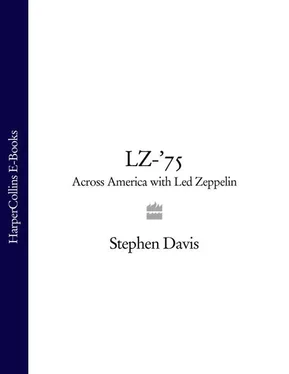

![Мик Уолл - Когда титаны ступали по Земле - биография Led Zeppelin[When Giants Walked the Earth - A Biography of Led Zeppelin]](/books/79443/mik-uoll-kogda-titany-stupali-po-zemle-biografiya-thumb.webp)


